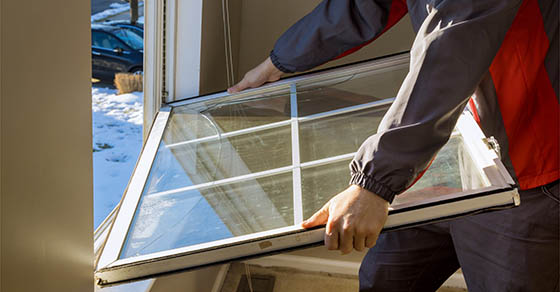

You may have heard that the Inflation Reduction Act (IRA) was signed into law recently. While experts have varying opinions about whether it will reduce inflation in the near future, it contains, extends and modifies many climate and energy-related tax credits that may be of interest to individuals.
Nonbusiness energy property
Before the IRA was enacted, you were allowed a personal tax credit for certain nonbusiness energy property expenses. The credit applied only to property placed in service before January 1, 2022. The credit is now extended for energy-efficient property placed in service before January 1, 2033.
The new law also increases the credit for a tax year to an amount equal to 30% of:
The credit is further increased for amounts spent for a home energy audit (up to $150).
In addition, the IRA repeals the lifetime credit limitation, and instead limits the credit to $1,200 per taxpayer, per year. There are also annual limits of $600 for credits with respect to residential energy property expenditures, windows, and skylights, and $250 for any exterior door ($500 total for all exterior doors). A $2,000 annual limit applies with respect to amounts paid or incurred for specified heat pumps, heat pump water heaters and biomass stoves/boilers.
The residential clean-energy credit
Prior to the IRA being enacted, you were allowed a personal tax credit, known as the Residential Energy Efficient Property (REEP) Credit, for solar electric, solar hot water, fuel cell, small wind energy, geothermal heat pump and biomass fuel property installed in homes before 2024.
The new law makes the credit available for property installed before 2035. It also makes the credit available for qualified battery storage technology expenses.
New Clean Vehicle Credit
Before the enactment of the law, you could claim a credit for each new qualified plug-in electric drive motor vehicle placed in service during the tax year.
The law renames the credit the Clean Vehicle Credit and eliminates the limitation on the number of vehicles eligible for the credit. Also, final assembly of the vehicle must now take place in North America.
Beginning in 2023, there will be income limitations. No Clean Vehicle Credit is allowed if your modified adjusted gross income (MAGI) for the year of purchase or the preceding year exceeds $300,000 for a married couple filing jointly, $225,000 for a head of household, or $150,000 for others. In addition, no credit is allowed if the manufacturer’s suggested retail price for the vehicle is more than $55,000 ($80,000 for pickups, vans, or SUVs).
Finally, the way the credit is calculated is changing. The rules are complicated, but they place more emphasis on where the battery components (and critical minerals used in the battery) are sourced.
The IRS provides more information about the Clean Vehicle Credit here: https://www.irs.gov/businesses/plug-in-electric-vehicle-credit-irc-30-and-irc-30d
Credit for used clean vehicles
A qualified buyer who acquires and places in service a previously owned clean vehicle after 2022 is allowed a tax credit equal to the lesser of $4,000 or 30% of the vehicle’s sale price. No credit is allowed if your MAGI for the year of purchase or the preceding year exceeds $150,000 for married couples filing jointly, $112,500 for a head of household, or $75,000 for others. In addition, the maximum price per vehicle is $25,000.
We can answer your questions
Contact us if you have questions about taking advantage of these new and revised tax credits.

